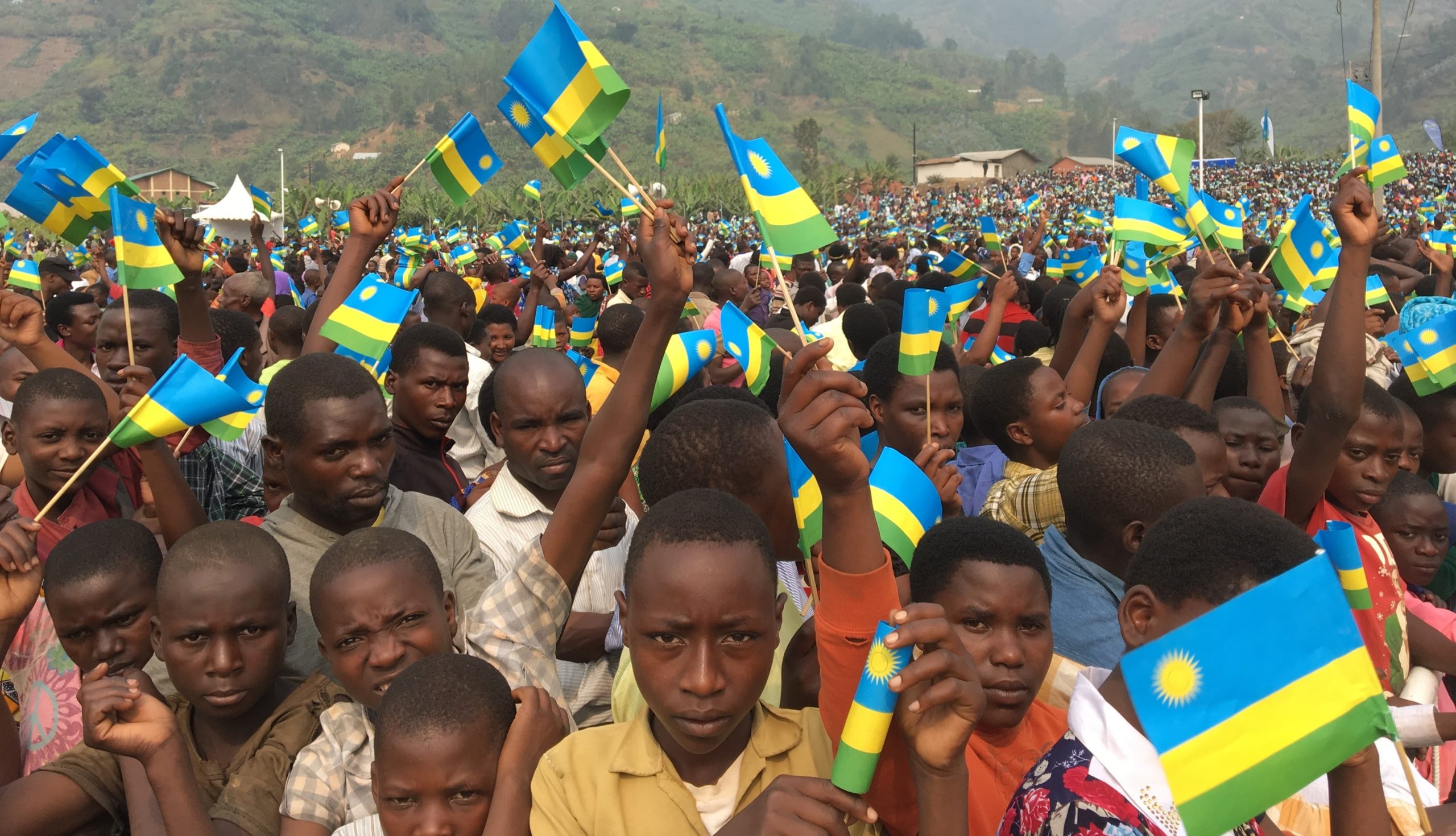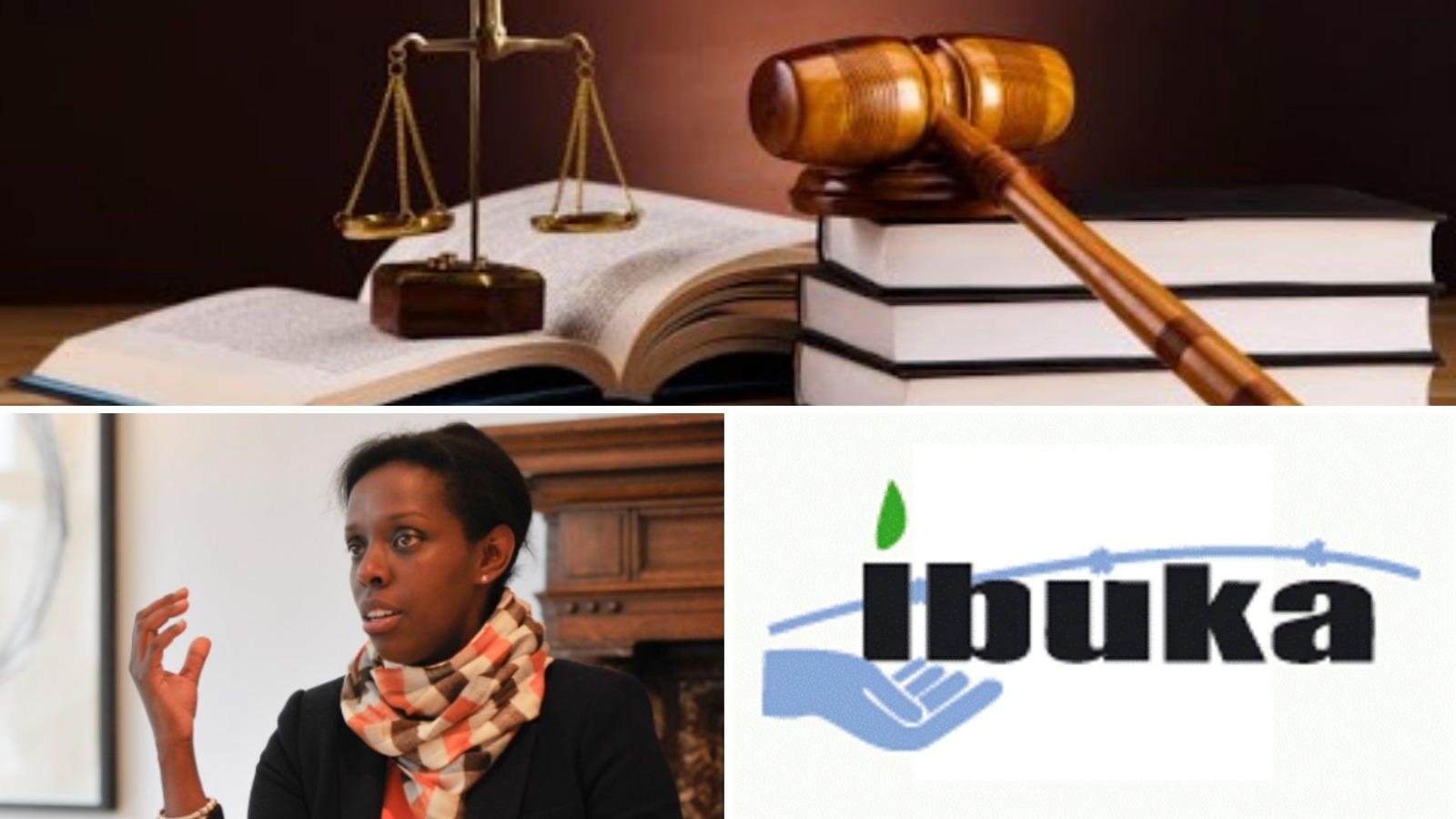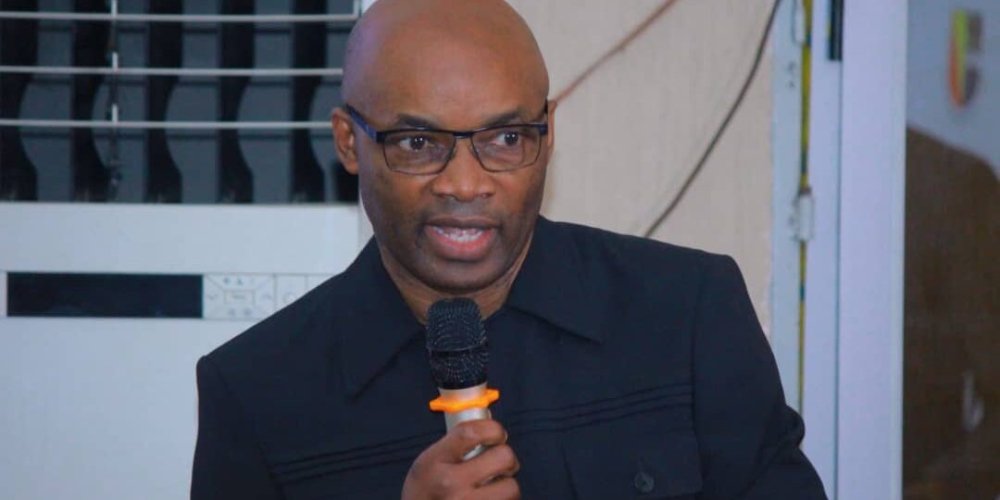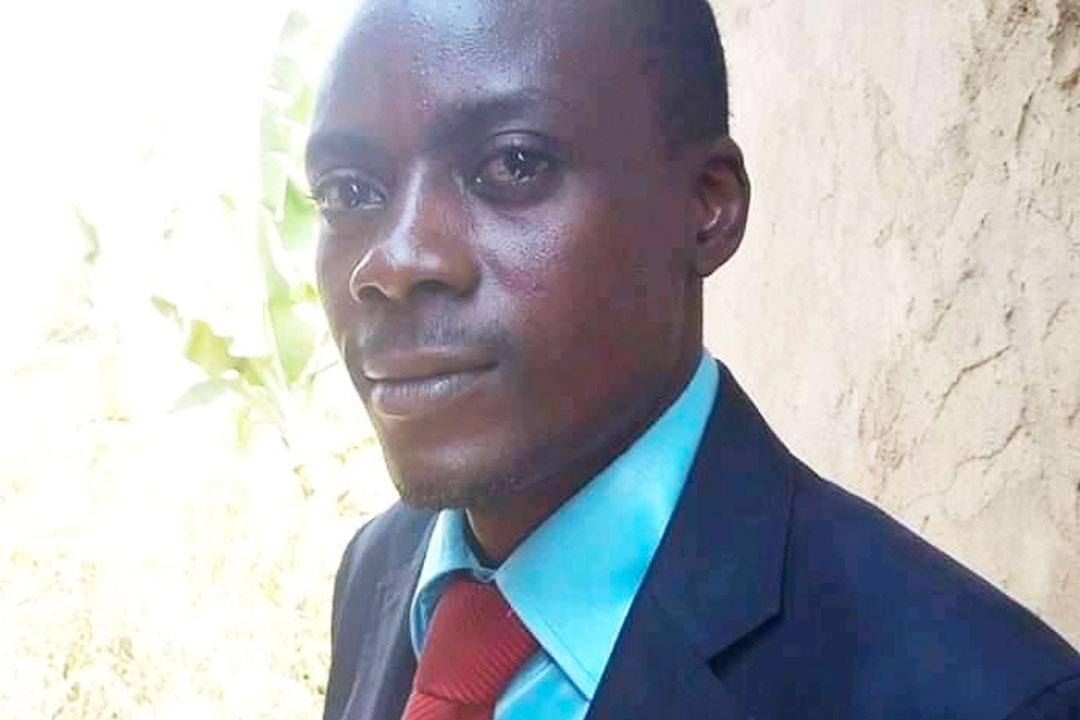Opinion article by Prudence Nsengumukiza
In the East African community (EAC), Rwanda tops the list of unhappy people with 3.3 score. Uganda ranked the best in the region at 117 with 4.6 score, followed by Kenya at 119, and Tanzania third (139).
For the Democratic Republic of the Congo, Burundi and South Soudan no data were available on this year’s survey.
Finland has been named the happiest country for the fifth successive year, Denmark bagged the second spot and Switzerland claimed third, Iceland at number four, is followed by the Netherlands in fifth and Luxembourg in the sixth place. Sweden, Norway, Israel, and New Zealand form the remainder of the top 10.
According to the report, the European continent has a very happy population with a score of 6.5. while Africa has a very unhappy population in the world with a score of 4.5.
This report of 2022 is related to 20th March, the International Day of Happiness that has been celebrated around the world since 2013.
Finland ranked first for the fourth year running with a 7.8 score, followed by Denmark and Switzerland, with Iceland and the Netherlands also in the top five.
This initiative and resulting report are connected to the United Nations General Assembly’s resolution of July 2011 requesting member countries to start measuring and tracking the happiness of their people within the overall objective of working for sustainable development.
Researchers ranked the countries after analyzing data over three years. They looked at several categories including gross domestic product per capita (GDP), social safety nets, life expectancy, freedom to make life choices, generosity of the population, and perceptions of internal and external corruption levels.
Crucially, the report looks at the freedom to make political choices. Judicial authorities in Rwanda are prosecuting opposition members, journalists, and commentators on the basis of their speech and opinions.
Lack of freedom of speech and media freedom of expression.
In Rwanda, during the tenure of president Paul Kagame it is difficult, even impossible to find a journalist who work freely, some journalists are intimidated, jailed, tortured or killed because of their works revealing the wrongdoing of authorities and the people who have a close relationship with the ruling party, the RPF. Journalist NIYONSENGA Dieudonné is the most recent victim of the blatant harassment of journalist.
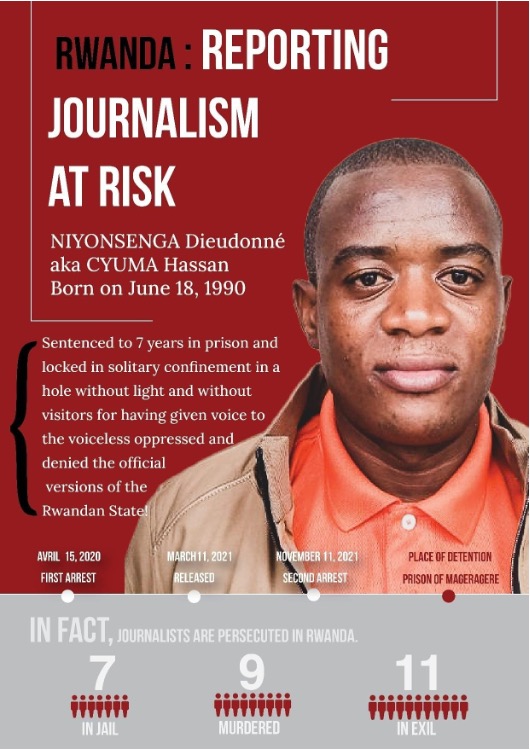
Rwanda is set to host the next Commonwealth Heads of Government Meeting, which will include discussions on governance and rule of law. The meeting is expected to bring together leaders of 53 Commonwealth countries in Kigali in June 2022.
The Rwandan people have fear to express their opinions freely because of arrests and reprisals. Rwandan law allows for overly broad and vague limitations on free speech, which violate the right to freedom of expression and media freedom protections afforded by international law.
Article 38 of the 2015 Constitution nominally protects freedom of expression but claws back that protection through ill-defined restrictions on the basis of “public order, good morals, the protection of the youth and children, the right of every citizen to honor and dignity and protection of personal and family privacy.”
These restrictions are incompatible with Rwanda’s regional and international obligations.
Rwanda’s 2018 Penal Code contains several provisions that can enable abusive prosecutions and have fostered a culture of self-censorship. Although the Supreme Court ruled in April 2019 to repeal articles that criminalized “public defamation of religious rituals” and the “humiliation” of authorities and public servants, several provisions remain that place disproportionate and unwarranted sanctions on speech deemed defamatory or false.
Article 236, which criminalized “insults or defamation against the president,” was repealed later in 2019.
In recent years, Human Rights Watch has also documented several cases of abusive prosecutions of people who spoke out about human rights abuses and were convicted of “spreading false information with intent to create a hostile international opinion against the Rwandan state.
Judicial authorities in Rwanda, lacking the independence to stand up and protect free speech in accordance with international law, have unjustly convicted and jailed people based on their protected speech and opinions
According to the report of Committee to Protect Journalists published in last year Rwanda is ranked among the countries which have sent journalists behind bars for carrying out their duties.
Number one is Eritrea jailing 16 journalists in 2021; number two is Ethiopia (9); and Rwanda is ranked third with (6) Journalists and youtubers jailed in 2021.
In Rwanda, some of the journalists are YouTubers reflecting the government crackdown on an alternative space for critical commentary and journalism.
The 6 Journalists incarcerated in 2021 are: Niyonsenga Dieudone aka Cyuma Hassan (Ishema TV), Christopher Kayumba (The Chronicles) Rachid Hakuzimana (Youtuber) Karasira Aimable (Youtuber) Idamange Iryamugwiza Yvonne (Youtuber) and Théoneste Nsengimana of Umubavu TV.
According to article 16 of the law No 22/2018 of 29/04/2018, Law relating to the civil, commercial, labour and administrative procedure, “Any case referred to the court must be decided within six (6) months from the date the claim is referred to the court”. After 3 years the 3 young Journalist Jean Baptiste Nshimiyimana , Schadrack Niyonsenga and Jean Damascene Mutuyimana jailed in Mageragere Prison theirs cases are yet to be judged in merits and sentenced for the alleged crime.
Dozens of Rwandan journalists were in hiding from arrest warrants issued in retaliation against their news reporting activities, others have fled the country into exile.
The journalists were jailed amid of revealing the wrongdoing of the RPF (the ruling party) and other crimes committed by Rwandan high ranked military officials.
The Journalists imprisoned in Rwanda are accused of crimes related to Genocide Denial, inciting an uprising among the public, and publication of rumours.
As Rwanda approaches the 30-year mark since the genocide, and the government aims to ramp up efforts to combat genocide ideology, there is a need to ensure that Rwandans can peacefully express legitimate grievances related to the genocide and post-genocide periods.
An increasing number of people have been forcibly disappeared, assassinated or have been reported missing in Rwanda since the tenure of RPF and president Kagame.
February 7, 2021, Bahati Innocent is a beloved Rwandan poet, activist, and social commentator. He has been missing since February and has become another grim example of a steady stream of forced disappearances of high-profile critics of the Rwandan government.
After the pressure of international community and more than 100 prominent writers called for action over missing of Poet Bahati Innocent aka Rubebe , Rwanda Investigation Bureau (RIB) has disclosed that a Rwandan man who was reported missing in February 2021 crossed into Uganda. According to Kigali sources from anonymous people closed to the security and intelligence services poet Bahati Innocent is now in Rwanda in unidentified safe house whereby he is tortured every day awaiting his presentation in Media.
November 6, 2020, the disappearance of Guillaume Rutembesa, a Rwandan activist who was very critical to Kagame’s regime and who lived in exile in Kenya. He was often the target of insults and threats from supporters of the Kigali regime. Two weeks before his disappearance, one of them, Damien Nkaka, a former soldier of the RPA (Rwandan Patriotic Army) had warned him in particular: “little dog you think you will succeed in hiding better than Sendashonga?
in reference to Seth Sendashonga, former Minister of the Interior of the first post-94 government, assassinated on May 16, 1998 in Nairobi. General Kagame claimed responsibility for the assassination in March 2019.
In October 2020, Guillaume Rutembesa published the series of tweets revealing the luxury life of General Kagame’s children under the hashtag #TheKagamesPlundering, launched on Sunday October 18.
Ange Kagame’s replied later “a good Sunday to all EXCEPT to those who spend all of their time spying on the happiness of others. »
Kizito Mihigo, February 2020, the singer and government critic died under suspicious circumstances in police custody. Police claim Mihigo strangled himself — but days before his arrest, he reported to Human Rights Watch that he was being threatened.
Revocant Karemangingo, 2021, Millionaire businessman Revocant Karemangingo was sprayed with bullets by gunmen near his home in Maputo. The outspoken Kagame critic had settled in Mozambique after being ousted from his home country in 1994. He was killed after the deployment of Rwandan defense forces soldiers in Mozambique to fight against the terrorism.
The Rwandan government has denied any involvement in the killing. However, Cleophas Habiyaremye, president of the association of Rwandan refugees in Mozambique, rejects the denial. “If there is any real independent inquiry, Kagame and his government should be held responsible,” Cleophas Habiyaremye told DW.
May 2021, Rwandan journalist Ntamuhanga Cassien disappeared in Maputo after being taken into custody by Mozambican police, and has not been heard from since.
On 26 March 2016, Illuminée Iragena, a member of the opposition political party United Democratic Forces (FDU-Inkingi), went missing on her way to work as a nurse at the King Faisal Hospital in the country’s capital Kigali, she was reported to be killed by military intelligence agents.
Illuminée Iragena stood as a candidate in the 2008 legislative elections for the Social Democratic Party. Her husband, Martin Ntavuka, is the former FDU-Inkingi representative for Kigali. They have both previously been detained in connection with their political activities.
Anselme Mutuyimana, March 2019, the assistant to Victoire Ingabire, president of the opposition United Democratic Forces (FDU-Inkingi) party, was found dead in the woods in March 2019. The year before, Mutuyimana had been freed from a six-year prison sentence for “political activism.”
Jean Damascene Habarugira, 2017, The opposition politician disappeared after being called to a meeting with an officer responsible for local security. A few days later, authorities called Habarugira’s family to collect his body from a local hospital.
October 2018, FDU Vice President Boniface Twagirimana has been missing since October 2018 and is feared dead.
On 20.07.2019, FDU Inkingi Member Eugène Ndereyimana who was reported missing on 15/07/2019 in Nyagatare while he was in campaign of mobilizing people to join his party. and has not been heard from since.
The list of disappeared and assassinated people is too long, there are so many people that their names are not mentioned here. The disappearance cases are all related to the way of advancing opinions and political space in Rwanda which is closed. No one knows who is the next to be kidnapped and killed among political opposers and journalists criticizing the wrongdoings of Kagame’s regime, everybody is a candidate. According to international organization that promotes human right and freedom, it is incredibly worrying to see these rising cases of assassination, disappearances, and the impact that this has on the broader political context in Rwanda.
While Rwandans are facing human rights abuses, arrests, detentions and forced disappearances, for the other side the cost of living for poor households is also on the rise as their purchasing power is weakened by harsh decisions that impoverish them.
High Cost of living, unfair and political motivated decisions.
The rise in the cost of basic items including foodstuffs, housing, transport and utilities has driven up the cost of living for poor households in the country.
Families reported having to pay more for the same items they could afford on the current budgets, yet incomes have barely increased, affecting their Purchasing power.
The small traders (Abazunguzayi) are banned to do their business in every inch of the city of Rwanda as the government stop their business on the reason relating to security, sanitation and hygienic concern.
This decision gives too much advantages for a group of individuals closed to the ruling party (RPF Inkotanyi) and president Paul Kagame in a monopoly market.
The cost of living is not easy as the government impoverished many Rwandans by stopping small business and closing the borders of neighboring countries which used to supply many products in Rwanda.
For instance, a primary school teacher family with four children who relied on Rwf 54,000 (52US $) monthly to buy food and other items now needs an additional amount higher than his monthly salary to make it to the end of the month after prices of basic commodities rapidly surged over the past three months.
After price soar in the end of 2021, the cost was doubled, for example the price of sugar had risen from Rwf1,000 to Rwf1,500 per kilogramme.one liter of cooking oil had risen from Rwf1800 to 3600 Rwf.
There has been an increase in the prices of other products like vegetables and legumes including tomatoes, amaranth chilli pepper, beans and peas and beverage.
A minimum price rent of small house with 2 rooms in Kigali is 12,000 Rwf . For those who drink beer, a bottle of one of the most popular beverages, Mützig, now costs 1,500 Rwf (1,5 USD), the price soar matter speaks louder, how can these Rwandans be happy while they are struggling with the high cost of living? it is a matter of the time many Rwandans will stand and protest against the regime of Kagame which impoverish them.
In addition, the public servants, businessmen, and other people who have a monthly income are asked to pay higher taxes and various contributions such as paying RPF Inkotanyi monthly contributions called Umusanzu w’umuryango, security contributions (amafaranga y’umutekano) , health insurance (Umusanzu w’ubwizigame mu kwivuza) , and sanitation contribution (amafaranga y’isuku) for urban residents.
Other reasons making Rwandans to be unhappy are the unjustified demolition of the houses of some people accused of building houses that do not correspond to the master plan of the cities without building permits as well as the construction of houses in the high risks zone.
After the demolition the government refuses to pay compensation and expropriation fee to the people whom houses were demolished in couple of years.
Around December 10, 2019, the inhabitants of “risk areas”, those that the city of Kigali (Nyarutarama, Kagugu, Gatsata, Gisozi, Rwampara, Kimihurura, Kiruhura considers to be flood-prone or swampy area, they received the notice to leave the premises within two weeks. Two days later, according to the testimonies of some of them, the Rwandan police, and the personnel of the DASSO (Organe d’Appui à la Sécurité Administrative du District in French) as well as the local authorities visited the persons concerned. around midnight to warn them that they had to leave the next morning at the latest. On December 13, 2019, very early in the morning, the demolition of the houses began.
From that moment, many images began to circulate on social media. On these we see civilians equipped with makeshift tools (picks, hammers, hoes, etc.) fiercely destroying the houses of other civilians under supervision of armed police.
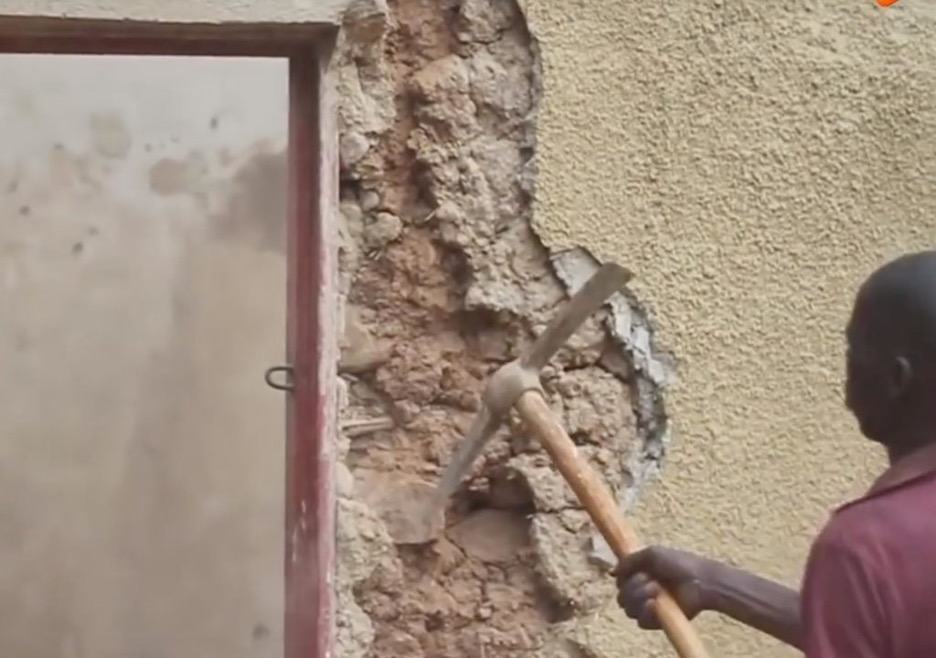
The images also showed people cooking while others with their children fall asleep on the streets near the rubble of their homes, accompanied by salvaged materials.
The images shocked Rwandans locally and abroad, including those who usually support the Kagame’s regime.
In response to that demolition 6,000 people were chased out from their homes: 1,500 people were forced to rent houses, 300 people were housed in school classrooms and 4,000 people were accommodated by their neighbors or families.
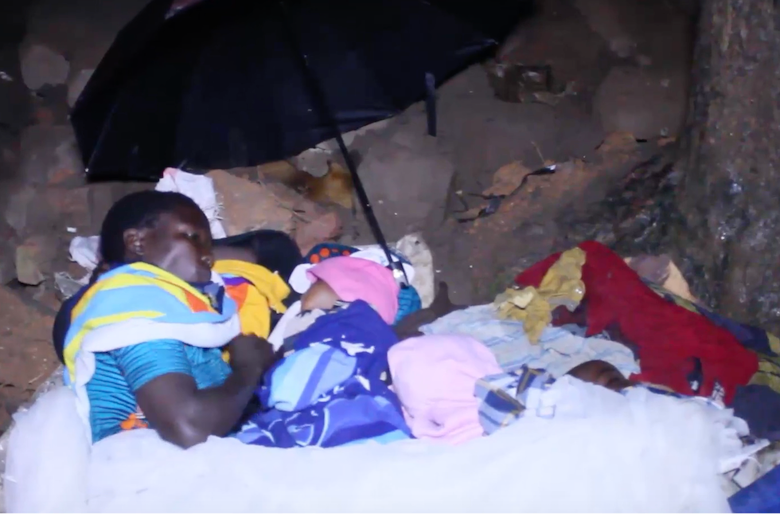
A Rwampala resident, a grandfather over 80 years said: “We have lived here since 1989, so more than thirty years. I am a grandfather, I am very surprised, there have never been any floods. How can the authorities (the executive secretary of Nyarugenge District and the Rwandan police) come and order us to leave without even giving us a notice? the authorities should come and make land evaluation and buy our land, then we will be forced to find another place to house our families. They came at 3 p.m. and asked us to leave the place at 4 p.m., how is that possible? Our difficulties are that they want to make us refugees whereas we had a home… Beyond the allowances we would like to have a period of one month to find another place, we are not goats. we do not want to be refugees in our own country, we have land titles and we pay the housing tax every year.”
Jean de Dieu Shikama, a resident of Kangondo (Bannyahe) who have the house demolished by the city of Kigali in interview with local media in Rwanda said that he needs at least Rwf 150 million (150,000 USD) for compensation for his property, he added that if he doesn’t get right compensation, he will fight until the last minute. “Why are we going to become refugees when there is no war? I grew up here, I have never seen or heard of a house being flooded. Can we ask a tenant who has just paid the rent to leave the house immediately without anything justifying the termination of the contract?” They asked us to leave without a notice, Jean de Dieu Shikama added.
Riziki MUKAMANA, a 72-year-old grandmother in interview with local media UKWEZI TV said “I was born here, I am 72 years old. I was surprised that people came to demolish our houses asking us to take our household materials and leave without any compensation. They didn’t give us anything, we sleep outside in the rain with our children, it’s a big problem. They did not warn us, they came to take inventory and told us that we were going to be compensated. The police, and the DASSO agents came back yesterday at 11 p.m. to inform us that in the morning we will have to pack up and leave the house. Early in the morning they came to demolish the house. You understand that this is an extremely sad situation, a 72-year-old granny! They woke me up with the children and grandchildren and here I am outside with them in the rain when we had a house. We have land titles and we pay property tax every year. It is sad and distressing. I’m waiting for them to finish demolishing my house and I’ll come back with my things to sleep in the rubble. No death can exceed this one! I was born here; I don’t have the capacity to lent the house and nowhere to go with my children. I live with four of them here. »
Except houses demolished, there is a pain, suffering and devastation that president Paul Kagame and his regime caused to different families of businessmen who refused to give contribution to RPF and to cooperate with it in a joint business way. By the order from president Kagame the Kigali city authority demolished some commercial buildings and other business entities owned by political opposers and other people who refused to share business with the ruling party.
Among the businessmen whose properties and premises seized and demolished there is family Rwigara and family Mirimo. Gaspard Milimo and Rwigara Assinapol are Tutsis who survived genocide who later died from mysterious death.
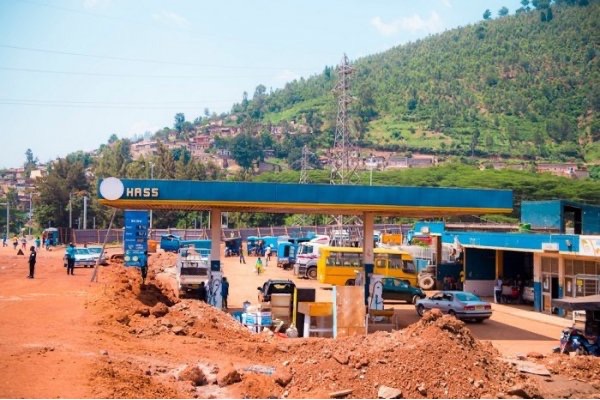
Mirimo family, has consistently turned down any demand to have their properties demolished.
The family claimed that, several institutions required that they would be expropriated if the city is to clear the properties but, the city of Kigali maintained that illegal properties in the wetland are not subject to expropriation.
It seemed to be unfair, the Inyange Industry buildings owned by crystal ventures located in a wetland area at Masaka and its chemical pollutions are danger to the biodiversity but it is yet to be demolished even though the house located in its surrounding were all demolished.
Businessman Assinapol Rwigara who mysteriously died in an automobile accident February 4, 2015 which was an assassinate according to his family. 13, September 2015, his hotel “Premier Hotel” was demolished.
According to the authorities, the building did not comply with construction standards and Kigali master plan. This was the pretext because in the city of Kigali they are hundreds of buildings which are not on the level of the Rwigara hotel which was demolished in terms of beauty and durability of the building.
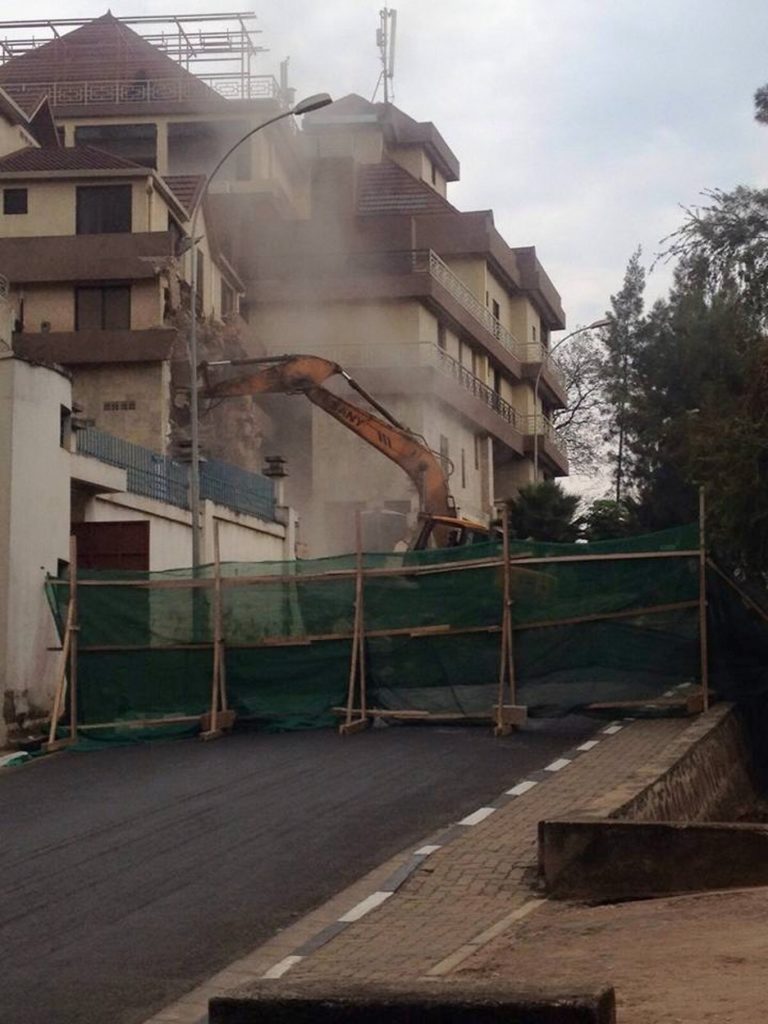
Few remaining family assets is to be auctioned off, September 26, 2021: The Court determined that the Rwigara’s hotel in Kiyovu is to be auctioned off.
February 9, 2018: Rwigaras’ Premier Tobacco Company seized, March 28, 2018: The stock of Premier Tobacco Company was sold to another tobacco company.
In 2017, His daughter Diane Rwigara was barred from running in the 2017 presidential election and was later arrested on accusations of forgery and inciting insurgency.
In 2018, the Rwanda revenue authority sold machinery from the family’s tobacco for almost ($2m) in bid to recover $7m in tax arrears. the family says the auction and charges against them are politically motivated.
Inequality among Rwandans.
Another big concern about the reason which makes Rwandans to be ranked among top an unhappier people in the world is the inequality distribution of resources among Rwandans. According to the Gini coefficient a measurement of the income distribution of a country’s residents there is a gap between the rich and the poor.
Rwanda spends resources on politically connected people and funding the project aiming at showing the good images of Kigali city development such construction of Kigali Convention center, Kigali Arena, and buying the luxurious cars for the government officials, and strengthen the military power while the poor, who most need a helping hand, are either left to their own devices.
Each year, life becomes more expensive in Rwanda and many people lose hope of life even though the government says that the country is developing. Many people are still living in poor conditions where some do not have access to pure water, unable to get a balanced diet and many young people have no hope for their future. Photo caption: Nyagatare residents share water with their cattle.
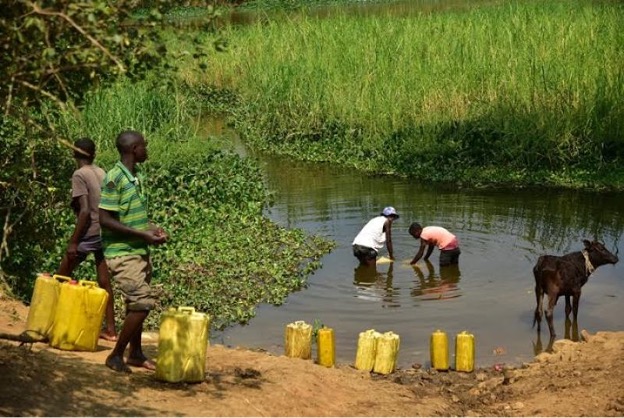
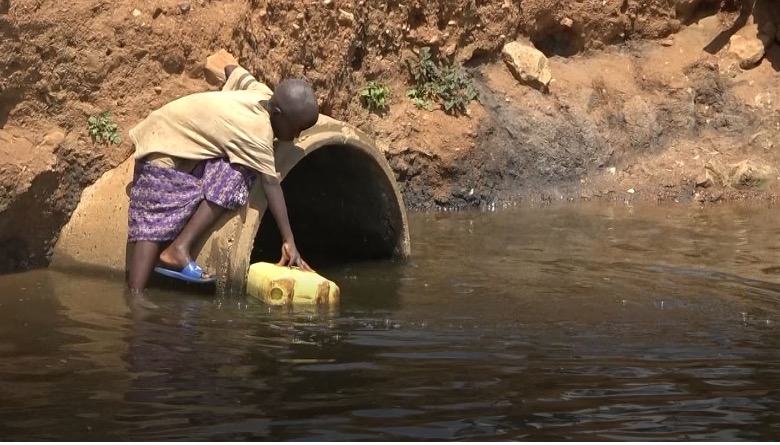
MP Frank Habineza in interview with local media Popote TV said that it is worrying that water will continue to be scarce in Kigali City, where some residents have been without access to water for weeks as having water must be fundamental right to Rwandans.
“Even though we live in Kigali, Kimironko and Bumbogo we often get water once per a week, even though we have been without water for two or three weeks,” he said.
Recently we bought a jerrycan of water for FRW 1000, it is very expensive. It’s a big problem, and in the community, they even drink water from ponds and swamps. Not only water, the electricity tariffs for residential consumers has increased.
There is also a huge inequality between the rich and the poor. Wealth is in the hands of a small group of people while the majority of population living in Rwanda consume less than one dollar per day.
Leaders are working for their own interest neglecting the interest of the common people. President Kagame had unlimited power in Rwanda from the start up to now.
As a way of consolidating his power the advantages to conduct the business and other benefits are given to a group of individuals which has a close proximity with his family and other high officials, consequently the wealth in Rwanda is in the hands of a clique of few individuals.
Kagame’s son, the citizen of Rwanda, a small, and impoverished landlocked country in Africa, nearly 40% of the population still lives below the poverty line recently bought a mansion in Beverly Hills (USA) for $6.9 million. Cyomoro Ivan Kagame possess another mansion bought on 22 May 2018 in a New York’s upper-class neighborhood of Scarsdale for $ 3 million dollars.
President Paul Kagame’s son, Ivan Cyomoro Kagame wears Richard Mille RM11-03 automatic winding Chronograph watch that costs $350000, approximately 350 million Rwandan francs equals to the construction price of hospital which can deliver medical services to many Rwandans.
Not only Cyomoro, this is the reality of many families who have a close proximity with president Paul Kagame. How could Rwandans be happy with this inequality?
Controversial arrests and unfair trials; the case of Hotel Rwanda hero Paul RUSESABAGINA.
The story began in Dubai when he was in a meeting, then reappeared in Rwanda, where authorities said the famed hotelier and a hero who saved many Tutsis in the genocide was arrested on charges including terrorism, arson and murder.
Paul Rusesabagina says that in August 2020 he intended to visit Burundi but after he boarded a private flight in Dubai he was instead flown to Rwanda as Rwanda sponsored his kidnaping by paying the transport price and a bribe to the people who collaborated in his abduction.
Details about his arrest and extradition were often contradictory. On 27th February 2021 the former minister of justice and attorney general Johnston Busingye in interview with Al Jazeera English confirmed that Rwandan government facilitated the journey that led to Paul Rusesabagina arrest in Kigali in August 2020. Rusesabagina later, taken before the international and Cross-Border crimes chamber of Rwanda’s High Court to be judged for the prosecuted charges.
Every accused is granted the right to a fair trial, in a country that is respectful to the rule of law, to achieve this a very person must have the right to a fair trial, the protection of these rights depends on the availability of access to the competent, independent and impartial Court of Law which can and will administer justice fairly in a so called “Due Process’
There is a lot of Criticism for the International and Cross-Border crimes chamber of Rwanda’s High Court which ruled the trial of Rusesabagina.
According to Miranda warnings and international laws, the arrest of Rusesabagina and his extradition in Rwanda are unlawful.
“Under the international human right law and the Miranda warning principle anyone who is arrested shall be informed, at the time of the arrest, of the reasons of their arrest and shall be promptly informed of any charges against them, Also the transfer of people from one country to another country without any kind of judicial or administrative process so called a rendition is illegal. Rusesabagina couldn’t been transferred in Rwanda without an administrative or a judicial document from UAE and he must have been informed about his charges.”
“The Lawful extradition of a suspect to face a trial in another country requires following “Due process” in extradition proceedings overseen by an independent tribunal, which among the other issues can assess whether a suspect ‘s rights in custody and a trial will be granted. This process was not followed in Rusesabagina transfer to Rwanda.
Rusesabagina was deprived the right to be represented by lawyer by his choice, prison authorities (RCS) confiscated privileged and confidential legal documents from him, the document before reaching him was inventoried by the prison authorities these was done not in accordance with the international law and domestic law.
Any person held in custody by the organ in charge of investigation or the public prosecution has the right to a legal counsel and engage in private communication with him or her.
Any person held in custody has the right to seek a legal counsel of his or her choice and is allowed to have private communication with him or her”
Rwanda and international legal instruments protect all communication and consultations between lawyers and their clients within their professional relationship as confidential.
According to the source closed to the government Rusesabagina was reportedly to be given the 5 minutes to speak with his family in a week which is not sufficient according to his family, his family added that his phone was monitored and controlled by Rwandan intelligence agency under Pegasus surveillance.
On 12, March 2020 Rusesabagina told the Court and Nyarugenge prison that he will never again appear before the Court as he doesn’t expect any justice from this Court after being denied a legal representation by his own choice and the time of 6 months adjournment to prepare his case.
Last year, Paul Rusesabagina who inspired the film ‘Hotel Rwanda,’ has been convicted of terrorism related charges and sentenced to 25 years in prison by the International and Cross-Border crimes chamber of Rwanda’s High Court in political and biased trial.
Rusesabagina’s trial has undoubtedly lowered the level of happiness in Rwanda for the world happiness index 2022, it proved that Rwanda does not respect human rights and the inclusion political opposers opinions who are claiming the change in the country’s governance.
Lack of freedom of speech and media freedom of expression, cost of living and high unemployment rate, controversial arrests and unfair trials are among the main reasons that make Rwanda one of the top five countries in the world with an unhappy population.
It requires efforts for Rwanda to perform very well in the next ranking as there is poverty growth, disruption of dissidents and human rights abuse.
Kagame’s choking statements, his anger and diplomatic spats with neighbors.
According to the Rwandan proverb “Umwera uturutse i Bukuru, bucya wakwiriye hose“, which means that whatever happens in the king’s palace, quickly spreads throughout the country the next day. The lack of happiness of ordinary Rwandans would thus steam from the constant bad mood of the top leaders.
In couple of years the president Paul Kagame himself denied the happiness to Rwandans with chocking and brutal statement, some Rwandans are living with fear and anxiety basing on these speeches.
On Sunday January 12, 2014, during a national prayer breakfast, Paul Kagame spoke out for the first time on the assassination of Patrick Karegeya, his former right-hand man who had become a fierce opponent. The body of the latter was found strangled in a hotel room in Johannesburg on January 1, 2014 and Kigali was singled out for this assassination.
“Anyone who betrays our country will become a victim. It only remains to be seen how he will become a victim; Rwanda did not kill this person. But I wish Rwanda had done it.” Kagame also sent a warning to the population: “Any person still alive who may be plotting against Rwanda, whoever they are, will pay the price.”.
On August 6, 2010, during presidential campaign , which took place in a tense climate following the assassination and imprisonment of several opponents in Rwanda and a few weeks after the attempted assassination of Kayumba Nyamwasa, in South Africa, Paul Kagame declares, in a speech in which he constantly confuses the Rwandan citizens with that of the RPF his party as well as with the Rwandan State “those people who are shot at abroad and survive , the Rwandan State does not miss its target when it fires. Nor is he responsible for the safety of criminals who go to live abroad. But when these criminals say that they are going to bring the war to Rwanda, whether it is them, whether it is those who support them, that they try, we will hit them, to the point that they will not know what hit them “Tuzabarasa, tuzabakubita ku buryo batazamenya ikibakubise”
We’re going to shoot them in broad day light “Tugiye kujya tubarasa ku manywa y’ihangu” Kagame said in his official visit in Nyabihu district 6, June 2014.
President Paul Kagame criticized the international organizations and countries that published the reports expressing concern over the assassination and disappearances in Rwanda. He said that there is no friendship or brotherhood in national security. Beyond arresting the people who supposedly destabilize the country he is going to shot them in broad day light.
Rwanda has had diplomatic spats with all its neighbours in the last two decades, until now Border between Rwanda and Burundi remains shut, Uganda border is re-opened but there is a restriction for free movement of people and goods. Rwandans cannot visit their family members living in Burundi, and Uganda, even they do not have access to food, education and healthcare from neighbours.
While the border closure effects have increased costs for some of the most vulnerable groups in Rwanda many Rwandans are unhappy.
Law in books not law in practice “Victims become offenders”
According to the constitution of the republic of Rwanda of 2003 revised in 2015 in article 15, All persons are equal before the law. They are entitled to equal protection of the law; it means that none who is above the law. Also, in article 21 of Rwandan Constitution the law stipulates that “Everyone has the right to due process of law”.
Rwanda is the first country in the Great Lakes region to abolish the death penalty. The law is clear, but the problem is to put it in practice fairly and equally.
Although the Rwandan constitution prohibits the application of the death penalty across the territory of Rwanda, in response with this speech, many Rwandans were shot dead in several times.
In 2016, a lawyer Me Nzamwita Toy was shot dead at Police checkpoint near Kigali convention center. The shooting is likely to attract considerable public concern about the cops ability to shot as an aim to kill the accused as justice should be served for every accused before the court of law.
For the shooting of Me Nzamwita Toy and other hundreds of people shot dead nevertheless, police and army did not regret the loss of the life in these unfortunate incidents and did not convey condolences to the families of the deceased.
According to HRW data Rwandan security forces summarily executed at least 37 suspected petty offenders in Rwanda’s Western Province between July 2016 and March 2017. Soldiers arbitrarily
arrested and shot most of the victims, in what appears to be an officially sanctioned strategy to execute suspected thieves, smugglers, and other petty offenders, instead of prosecuting them. These killings, carried out by and with the backing of state agents, are a blatant violation of both Rwandan law and international human rights law.
In the remarkable incident held in Rwanda, the Police Shot Dead at Least 12 people During the refugee Protest at Kiziba refugee camp.
Rwandan authorities have failed to release their investigations of the fatal shooting of 12 refugees by police in western Rwanda on February 22, 2018, in contrast, at least 63 refugees face charges related to the protests, ranging from “organizing and participating in illegal protests” to “spreading false information with the intention of provoking international opinion hostile to the Rwandan state”.
The perpetrators who supposed to be tried before Court, they live freely and they are serving for the government in the army and in police.
It is the same for journalists who reported the illegal demolition of the houses of Bannyahe inhabitants, as well as the cases of forced disappearance shooting and violence, they were all arrested and tried before courts for the crimes of inciting public to protest against the government, insurgency and spreading rumours.
Another shocking example is the rape cases that happened in Bannyahe. Journalist Cyuma Hassan who revealed it was jailed a few days after his report. And the soldiers who raped the Bannyahe women were acquitted.
The raped women were also intimidated, they were alleged to destroy the image of Rwanda defense forces on international scene, in order to stop its mission of peacekeeping in Central Africa and South Soudan.
If Rwandan leaders, and more specifically President Paul Kagame, are never happy, and are still making chilling and shocking statements 28 years after “liberating the country”, how can we expect ordinary Rwandans to be happy?
Rwanda, the unhappiest country in East Africa and one of top 5 unhappy countries globally, has been through not just natural disasters but Political disasters and bad governance. It experienced human right abuse, harsh decisions, assassination and disappearance of people resulted from their political choices and opinions.
Opinion article by Prudence Nsengumukiza
www.jambonews.net

